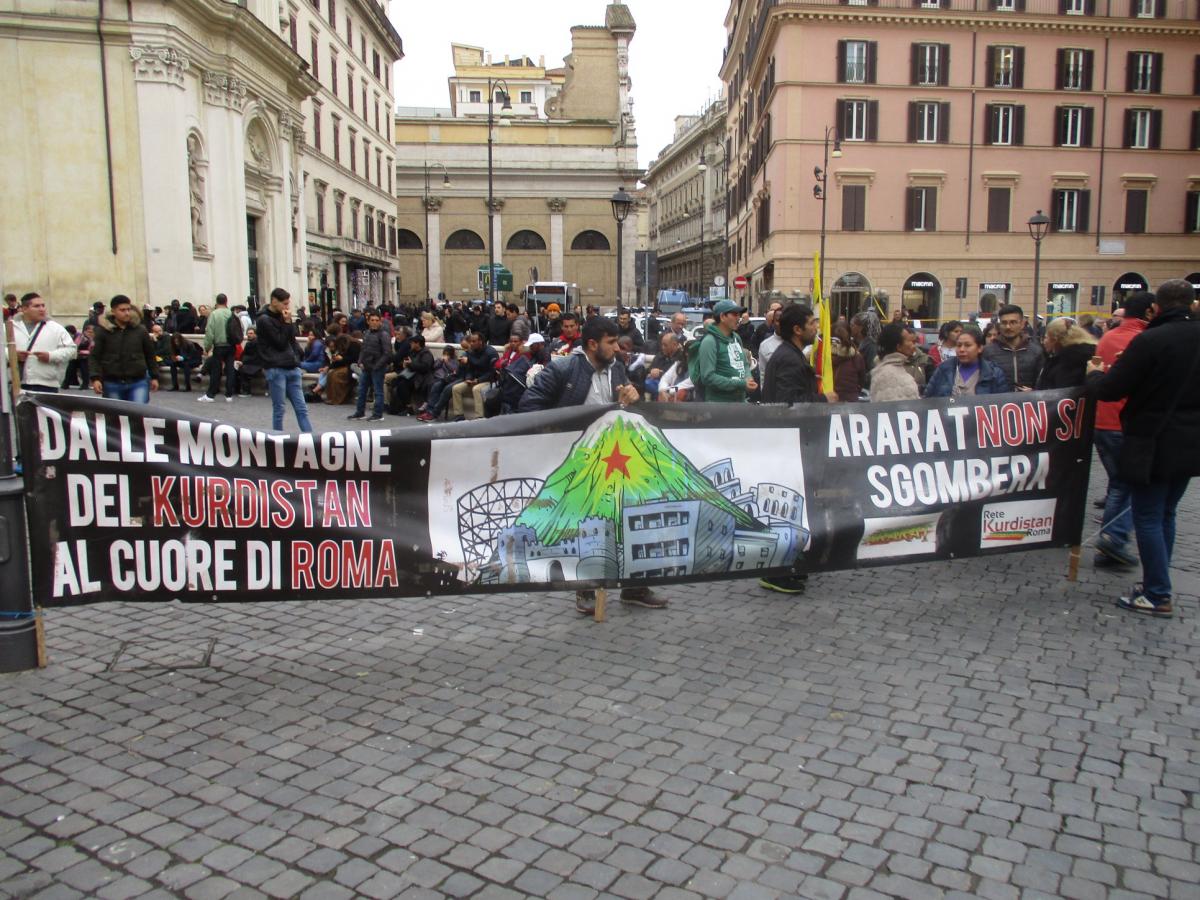
by Bill Weinberg, Fifth Estate/The Villager
It was a multicultural crowd that gathered in Rome's Plaza San Silvestro to oppose the draconian Security Decree then pending in the Italian parliament. Popularly called the "Salvini Law" after Italy's far-right Interior Minister Matteo Salvini (who appears to be the real power behind the government), the Security Decree was explicitly aimed at two broadly overlapping groups: immigrants and squatters.
Many of those in Plaza San Silvestro were both. One prominent banner read: DALLE MONTAGNE DEL KURDISTAN AL CUORE DI ROMA, ARARAT NON SI SGOBERA. "From the mountains of Kurdistan to the heart of Rome, Ararat will not be evicted." It displayed painted images of a mighty mountain and an old industrial building. Flying above the banner was the red-star flag of the Kurdish revolutionary movement in Turkey and Syria.
Ararat is, of course, the famous mountain in Turkey’s Kurdish east, but here it also refers to the Ararat Kurdish Cultural Center, one of Rome's many squatted community centers, in a reclaimed industrial space in the city's outlying Testaccio district. There was another contingent at the protest of Peruvian migrants living in a squatted building, and yet another of squatters from various Horn of Africa countries. The contingents clustered in groups, while the riot police and paramilitary Carabinieri formed a ring around the perimeter of the plaza.
Recent Updates
23 hours 21 min ago
23 hours 51 min ago
1 day 11 min ago
1 day 17 min ago
1 day 38 min ago
1 day 1 hour ago
1 day 1 hour ago
1 day 1 hour ago
1 day 2 hours ago
1 day 3 hours ago